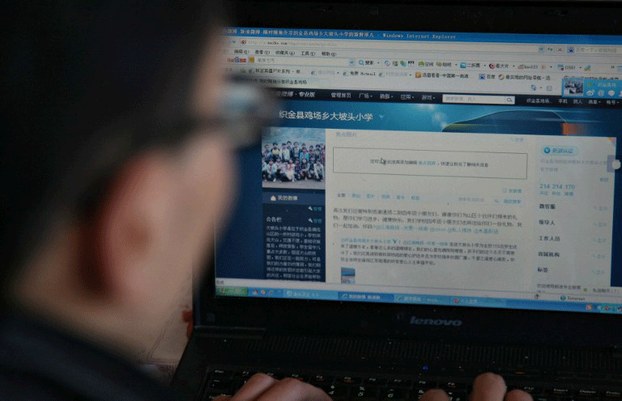
(TibetanReview.net, Feb19, 2015) – The human rights situation in China today is the worst in the past quarter century, Radio Free Asia (Washington) Feb 16 cited Hubei-based Civil Rights and Livelihood Watch group as saying in a report it had released that day. The report is said to speak of “worsening and regressive human rights situation,” and a domestic security regime that is more oppressive than anything seen in the past 25 years.
During 2014, the nationwide system for keeping track of critics of the ruling Chinese Communist Party was upgraded to the status of a national-level policy, the group‘s founder Liu Feiyue was cited as saying. Also, the domestic security, or “stability maintenance,” budget was raised to 205 billion yuan (US$ 33 billion) during the annual parliamentary session in Mar 2014.
The report is said to document 2,270 cases in which the authorities had implemented “stability maintenance” measures against rights lawyers, writers, journalists, academics, NGO activists, political dissidents and rights activists. The measures included house arrest, phone tapping, enforced ‘holidays’ and criminal detention by state security police, including with use of violence.
The report is stated to accuse Chinese police of routinely using public order offenses like “illegal gathering,” and “picking quarrels and stirring up trouble,” as catch-all charges for stability maintenance purposes. They are also said to abuse their powers of detention to limit personal freedom of citizens.
Controls over online content and media were stepped up and “large numbers” of civil society groups had their websites taken down in 2014.
Politically sensitive times, once limited to three or four major events or anniversaries a year, are said to be proliferating to the extent that online stability maintenance now takes place year-round, instead of in the run-up to important meetings or anniversaries like that of the 1989 military crackdown on the Tiananmen pro-democracy movement.
On the positive side, the report is said to note that the abolition of the “re-education through labor” camp system at the end of 2013 saw large numbers of petitioners against local government officials returning to society. And the “numbers being held in black jails fell by around 80 percent,” Sichuan-based rights activist Huang Qi, whose Tianwang rights website collates reports of petitioner activism across China, was quoted as saying.
He has also noted, however, that administrative detentions, criminal detentions and sentencing of petitioners by the courts all rose in the same year. “Large numbers of petitioners are still locked up and beaten up, all across China,” he has added.
Liu has predicted that “human rights situation will get even worse, and even more brutal, in China in 2015”, and that in 2014, the government began to organize certain experts to resurrect class struggle sessions, including ideological campaigns and controls in higher educational institutions.
Liu’s report follows the Jan 29 report by the New York-based Human Rights Watch (HRW) which said the administration of President Xi Jinping had mounted a severe attack on the rights of civic groups, lawyers, and others pushing for rule of law during 2014. While the HRW report credited Xi’s government for abolishing the police-run “re-education through labor” system, it said China remained a country that “systematically curbs fundamental rights, including freedom of expression, association, assembly, and religion, when their exercise is perceived to threaten one-party rule.”
And just a day before the HRW report, Washington-based Freedom House said in its annual survey of political and civil liberties in 195 countries in 2014 that North Korea and Chinese-ruled Tibet were among the 12 “worst of the worst” while China itself and Laos were only slightly better.


